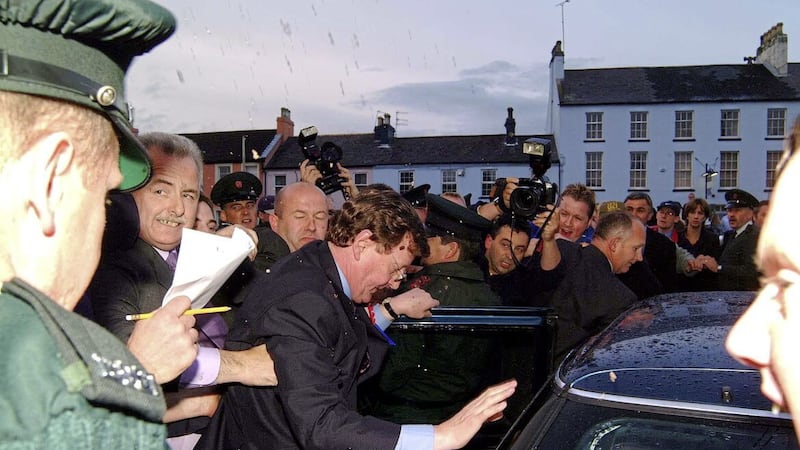AMONG the many tributes to David Trimble this week, few suggested that (like John Hume) in win-ning the Nobel Peace Prize, he effectively destroyed his own party.
Indeed, it was fitting that his death coincided with the SDLP’s decision (10 years too late) to become Stormont’s opposition.
Both parties were pawns in Britain’s long-term strategy for the north, which was to allow the sec-tarian cream to rise to the top on both sides. There they would develop an administrative interde-pendence, which would prevent the development of normal politics.
We would become a sort of political reservation, where the natives would perpetually war with each other, in a way which would not threaten the stability of Britain or the Western world. (You might have noticed that the Assembly has sat for just 18 months in the past five years.)
Trimble (and Hume) failed to recognise Britain’s plan and they became fall guys in the inevitable emergence of the sectarian extremes.
The SDLP’s problem stemmed from its Catholic analysis of the situation (they ignored Britain’s role in promoting sectarian division for political control).
Trimble’s problem was that although he and his wife Daphne enjoyed door-step canvassing and he was comfortable in the intimacy of an Orange Hall, he lacked the social charade of back-slapping duplicity which was so essential in dealing with people like Tony Blair.
More seriously, although he had a detailed knowledge of Irish history, he failed to recognise that the fundamental rule of politics is that, unlike law, there are no rules. Rational thought has no place in politics and certainly not in Irish politics.
Although his legal background moulded him as an excellent parliamentarian, his adherence to the logic of law led to his eventual downfall. (Academics should study politics, not take part in it.)
When he saw a solution, he assumed that everyone else could see it too. He did not apparently real-ise that many others were not even seeking solutions.
I knew David as an academic. As chief examiners in our respective subjects, we travelled to England to meetings, our air tickets booked for us, so we sat beside each other during the journey.
We never had what might be even remotely called a conversation. He was not the sort of person with whom you could talk about the weather. I only discovered this week, for example, that he had a passion for opera and that he had a narrow boat on which he toured English canals.
At the time I saw him as an English conservative, but those who worked closely with him describe him as a straightforward Ulster man, with no backdoors. He believed in putting country before party (he paid the price for that) and party before self (and he paid a heavy price for that too).
Personally loyal to those around him, he could not understand disloyalty towards him and those who worked with him say he never held a grudge.
In the 2001 general election campaign he preached the pluralism which he saw in British society and argued the same for here. His party’s vote fell by six percentage points. The DUP’s rose by nine. (The SDLP’s fell by three. SF’s rose by five.) Pluralism had no place in Britain’s plan.
In 2005 his party lost five seats. The DUP won four. It was all over for the UUP, which tore itself apart. Trimble was effectively its last leader. Subsequent leaders were left to pick up the pieces. Today there are few pieces left.
With no sense of irony, those who contributed to, and benefited from, his departure from politics and the demise of his party paid tribute to him this week. In Britain, Ireland and the US they queued up to canonise him as an architect of the Good Friday Agreement.
When we look at where we are today, it might be more accurate to remember him as as a political victim of that agreement.








